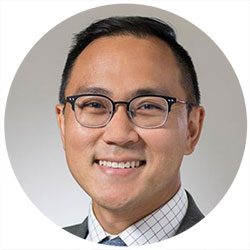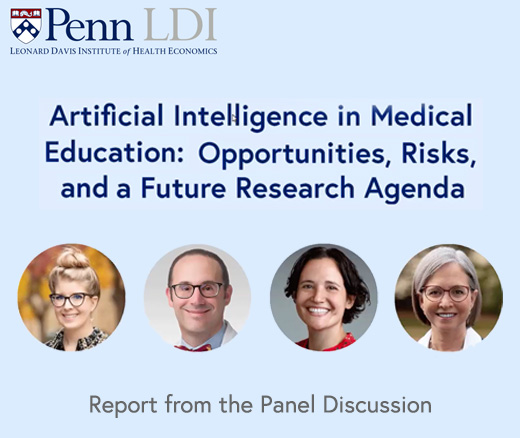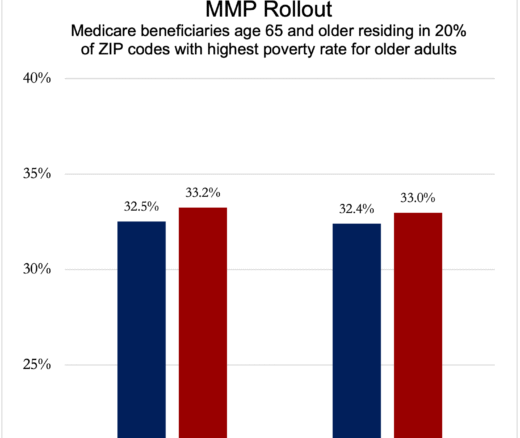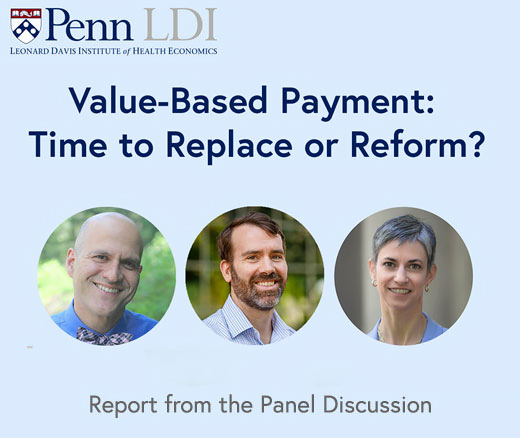
Hospital Mergers Don’t Make Care Better—They Just Make It Pricier, LDI Fellows Say
A New Review Finds Hospital Mergers Raise Prices Without Improving Care, and Urges Regulators to Stop Accepting Quality Claims to Justify Consolidations
News

The University of Pennsylvania’s Leonard Davis Institute and Penn Medicine have announced the launch of a new research lab that joins the expertise of LDI-affiliated health services researchers and Penn Medicine’s clinical expertise, data, and experience in health care delivery.
Called the LDI-Penn Medicine Research Laboratory, the new initiative is focused on investigating important questions about health care delivery that support LDI’s national mission of advancing health care knowledge and are of interest to Penn Medicine’s operations or strategic direction.

The collaboration grew out of discussions between LDI Executive Director Rachel M. Werner, MD, PhD, and University of Pennsylvania Health System CEO Kevin Mahoney, MBA, who have worked together informally over the years and began moving toward formalizing those talks into a partnership that could bridge health care delivery and research, and benefit both institutions.
“LDI’s Senior Fellows have worked in informal ways and through informal channels for decades. By formalizing this partnership and providing an infrastructure and funding to support the partnership, we can have an even greater impact on both research and operations,” said Werner.
The Lab will be directed by LDI Senior Fellow Krisda Chaiyachati, MD, MPH, MSHP. “This partnership is an opportunity to leverage the expertise of LDI Senior Fellows from across different disciplines and schools to answer and address important health care delivery questions,” said Chaiyachati.

Chaiyachati is also Medical Director of Penn Medicine OnDemand Virtual Care and Clinical Innovation Manager at the Penn Medicine Center for Health Care Innovation (CHCI). He pointed out how the new enterprise differs from the Innovation Center.
“CHCI has an important job of discovering day-to-day innovations in health care delivery which can, in turn, lead to changes in larger, longer-term strategies,” Chaiyachati said. “This LDI-PM partnership will start off asking the bigger two-to-three-year strategy questions driven by a joint LDI-PM steering committee. The LDI-PM initiative will have an even deeper focus on the strategy component. In addition, unlike CHCI, the Research Laboratory will open doors for disciplines and expertise from LDI and elsewhere in the University that have not traditionally had formal channels for collaboration with Penn Medicine.”
“We have tremendous strengths at both LDI in research on health care delivery, and at Penn Medicine in the practice of health care delivery. The LDI-Penn Medicine Lab brings these two strengths together and provides the opportunity to have an even greater impact at improving health care both here at Penn and beyond Penn,” Werner said.

Supported by joint funds from LDI and Penn Medicine, the steering committee that includes eight faculty members and executives from the Perelman School of Medicine, Penn Nursing, and The Wharton School, will fund a portfolio of research grants. Priority will be given to cross-disciplinary and cross-school teams, and team projects that have operational representation from Penn Medicine.
Some of the priority potential areas of research noted at the committee’s first meeting were health equity, non-traditional care settings, the opioid epidemic, and outpatient access.
The Lab will issue RFPs seeking proposals shortly. Open to LDI Senior Fellows, its first two 1-year research projects will begin in January, 2022.
Under Chaiyachati’s direction, the Lab will be guided by a Joint Steering Committee, made up of eight members who span LDI and Penn Medicine, including LDI Senior Fellow Rinad Beidas, PhD, Director of both the Penn Implementation Science Center at LDI and the Penn Medicine Nudge Unit; LDI Senior Fellow Margo Brooks Carthon, PhD, RN, FAAN, Associate Professor of Family and Community Health at Penn Nursing and core faculty at the Center for Health Outcomes and Policy Research (CHOPR); LDI Senior Fellow Mucio (Kit) Delgado, MD, MS, Assistant Professor of Emergency Medicine and Epidemiology and Lead at the Behavioral Science & Analytics for Injury Reduction (BeSAFIR) lab; Jonathan Epstein, MD, Senior Vice President and Chief Scientific Officer, Penn Medicine; Roy Schwartz, MBA, Vice President, Managed Care and Payer Relations, Penn Medicine; LDI Senior Fellow Hummy Song, PhD, MPP, Assistant Wharton School Professor of Operations, Information and Decisions; Michele M. Volpe, FACHE, Chief Executive Officer of Penn Presbyterian Medical Center; and LDI Senior Fellow Richard Wender, MD, Chair of the Department of Family Medicine and Community Health in the Perelman School.


A New Review Finds Hospital Mergers Raise Prices Without Improving Care, and Urges Regulators to Stop Accepting Quality Claims to Justify Consolidations

CMS’s Main Risk Adjustment Method Underestimates Rural Patients’ Health Risks, LDI Fellows Show, Potentially Reducing Access to Care in the Heartland

Experts at Penn LDI Panel Call for Rapid Training of Students and Faculty

A Proven, Low-Risk Treatment Is Backed by Major Studies and Patient Demand, Yet Medicare and Insurers Still Make It Hard To Use

New Study From LDI and MD Anderson Finds That Black and Low-Income, Dually Eligible Medicare Patients Are Among the Most Neglected in Cancer Care

Her Transitional Care Model Shows How Nurse-Led Care Can Keep Older Adults Out of the Hospital and Change Care Worldwide

Chart of the Day: Medicare-Medicaid Plans—Created to Streamline Care for Dually Eligible Individuals—Failed to Increase Medicaid Participation in High-Poverty Communities

Penn LDI Debates the Pros and Cons of Payment Reform